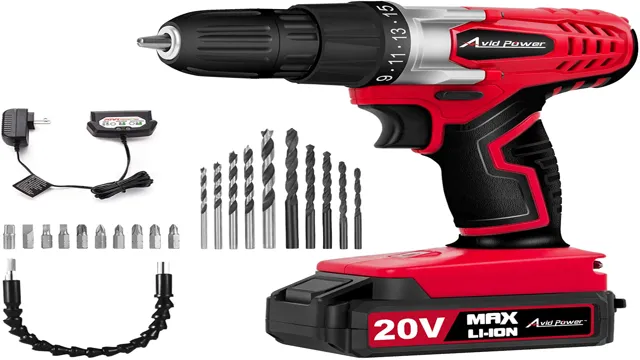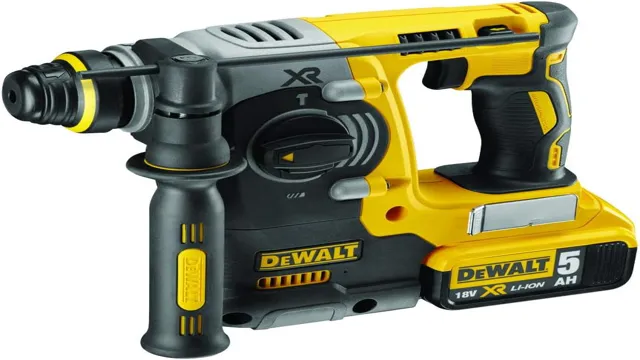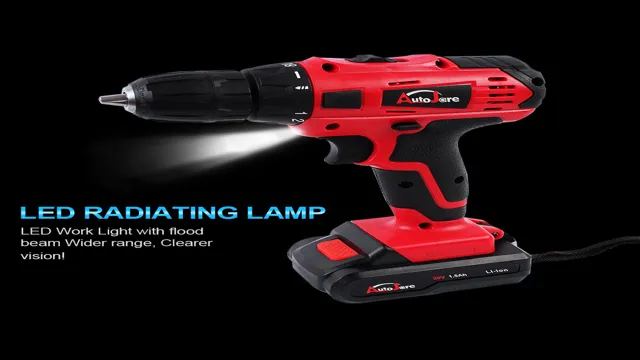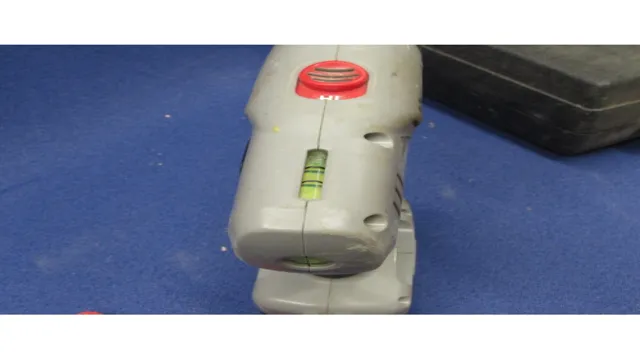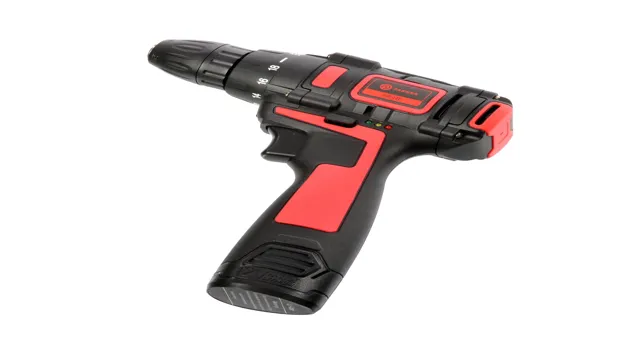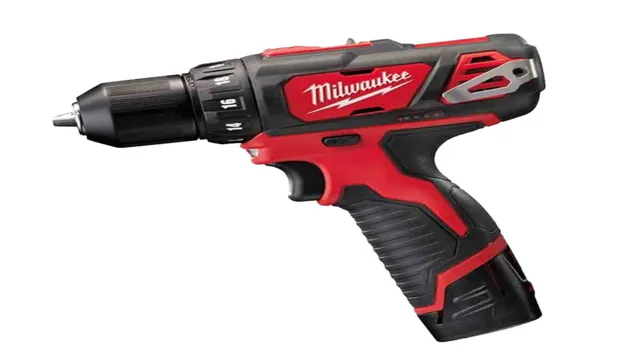Can Modified Square Wave Inverters Damage Your Cordless Drill Charger? Find Out Here
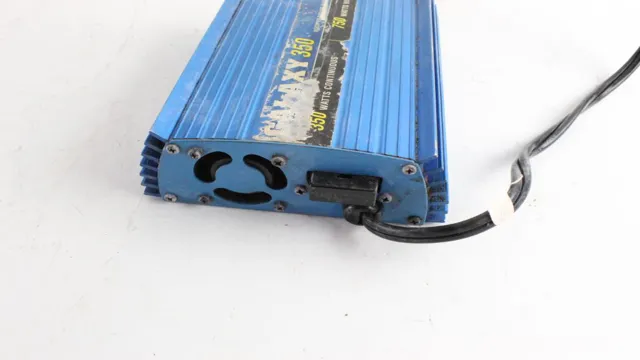
Have you ever plugged your cordless drill charger into a modified square wave inverter? If it’s crossed your mind whether it can damage your charger or not, read on. Modified square wave inverters are a popular choice for many due to their affordability and convenience compared to pure sine wave inverters. However, it is important to note that not all devices are compatible with modified square wave inverters, especially sensitive electronics like chargers.
In this blog post, we’ll explore whether modified square wave inverter cordless drill chargers can damage your charger and what precautions you should take to keep your equipment safe.
Understanding Square Wave Inverters and Cordless Drill Chargers
Many DIY enthusiasts have experimented with modifying square wave inverters to be used as cordless drill chargers. However, it’s important to understand that modified square wave inverters can potentially damage your cordless drill charger. This is because cordless drill chargers are designed to work with a specific type of wave known as a sine wave, while modified square wave inverters produce a choppy, distorted wave.
The inconsistent wave form produced by modified square wave inverters can put undue stress on the charger, leading to overheating, shortened lifespan, and reduced efficiency. It’s important to only use inverters that produce a pure sine wave when attempting to charge your cordless drill, as this will ensure the smooth and consistent flow of current necessary to keep your charger and drill functioning properly. Remember, safety should always be a top concern when experimenting with DIY projects, so it’s essential to do your research and follow best practices to avoid potential damage and harm.
What is a Square Wave Inverter?
A square wave inverter is an electronic device that converts DC (Direct Current) to AC (Alternating Current). Unlike sine wave inverters, which produce a smooth and perfect wave, square wave inverters generate a choppy or blocky wave. This type of inverter is less expensive and simpler in design, making it a popular choice for small applications such as cordless drill chargers.
However, it may not be suitable for sensitive electronic equipment as the wave produced can cause interference, noise, and damage to the device. It’s like using a chainsaw to cut a small tree branch. It may work, but the rough cut may not be ideal for all situations.
Knowing the advantages and limitations of a square wave inverter can help you choose the right type of inverter for your needs.
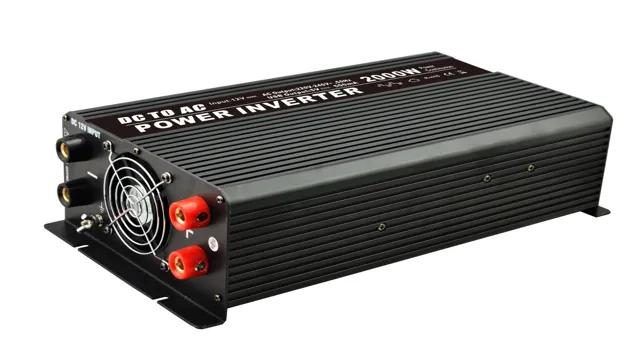
What is a Cordless Drill Charger?
A cordless drill charger is an essential accessory for anyone working with power tools. It is a device that converts AC power into DC power, which is then used to charge the batteries of cordless drills. Square wave inverters are commonly used in these chargers to efficiently convert power without creating excess heat or noise.
These inverters work by converting the voltage of the incoming power and then using electronic switches to create a square wave pattern that is used to charge the battery. The charger also incorporates a charging circuit that monitors the voltage and current of the battery to ensure it is charging properly. Without a proper charger, the battery may not charge to its maximum capacity or may not charge at all, which could result in reduced power output and shorter battery life.
Therefore, it is essential to choose a charger that is compatible with the cordless drill to ensure proper charging and longer battery life.
Can a Modified Square Wave Inverter Damage a Cordless Drill Charger?
It’s important to be cautious when using modified square wave inverters with electronic devices such as cordless drill chargers. While a modified square wave inverter can be a cost-effective solution to power supply needs, it has the potential to damage certain chargers. The reason for this is that modified square wave inverters produce a waveform that is not a smooth sine wave, which can affect the performance and lifespan of sensitive electronics.
In the case of cordless drill chargers, the modified square wave can cause the transformer within the charger to overheat and malfunction, leading to a potentially dangerous situation. As a general rule, it is recommended to use a pure sine wave inverter for charging sensitive electronics like cordless drill chargers to avoid any potential damage. Protective measures like surge protectors and voltage regulators can also be used to keep the charger safe.
Modified Square Wave Inverter vs. Pure Sine Wave Inverter
A modified square wave inverter is a bit cheaper than a pure sine wave inverter, making it a popular option for powering electronic gadgets and household appliances. However, one question that arises is whether it can damage a cordless drill charger. The answer depends on the type of charger you have.
If it’s a basic charger that lacks any electronic components such as a microprocessor, then it should work fine with a modified square wave inverter as it can tolerate a certain level of fluctuation in the input voltage. However, if it’s an advanced charger with a microprocessor or other sensitive components, it’s best to stick to a pure sine wave inverter. The reason is that a modified square wave inverter can introduce electromagnetic interference and voltage spikes that can damage the microprocessor and other sensitive components in the charger.
In the long run, the cost of repairing or replacing the damaged charger will surpass the savings made by using a modified square wave inverter, which makes it a riskier option. Therefore, it’s always best to match an inverter to the specific needs of the device being powered, instead of going for a cheaper but unsuitable alternative.
You May Also Love:
How Modified Square Wave Inverters Work
Modified Square Wave Inverter Modified square wave inverters are designed to convert direct current (DC) to alternating current (AC) which is needed to power various electrical devices including cordless drill chargers. Unlike pure sine wave inverters, modified square wave inverters produce an AC waveform that is not a perfect smooth wave, but rather resembles a stepped waveform. These types of inverters are cheaper than pure sine wave inverters and can power most basic appliances, but may not work as well with more sensitive equipment.
When it comes to cordless drill chargers, it is generally safe to use a modified square wave inverter as they are not typically sensitive to the shape of the waveform. However, it’s always good to double-check the manufacturer’s recommendation to ensure compatibility. Additionally, it’s important to use a properly rated inverter to avoid damaging the cordless drill charger or other electrical devices.
Effect of Modified Square Wave Inverter on Cordless Drill Charger
Modified square wave inverters are becoming increasingly popular these days due to their cost-effective and reliable performance. However, many people are still skeptical about using them, particularly when charging electronic devices like cordless drill chargers. The biggest concern is whether a modified square wave inverter can potentially damage the charger.
The truth is, it depends on the type of charger you’re using. Some chargers are specifically designed to function well with modified square wave inverters, while others might not. Most cordless drill chargers available on the market today can safely handle modified square wave signals without causing any issues.
Nevertheless, it’s always wise to check with the manufacturer’s instructions, especially if you’re using an older model charger. Additionally, it’s important to ensure that your inverter produces a clean output with minimal harmonic distortion to minimize the risks of damaging your charger or any other appliance. Ultimately, if used correctly, a modified square wave inverter should not harm your cordless drill charger.
Preventing Inverter Damage to Cordless Drill Chargers
If you’re someone who uses a cordless drill regularly, you may have considered using a modified square wave inverter to power your drill charger. While this may seem like a good idea at first, it’s important to be aware that using such an inverter can potentially cause damage to your charger. The reason for this is that modified square wave inverters don’t produce as clean of a power signal as pure sine wave inverters do.
This can lead to increased stress on the charger’s internal components, potentially causing them to overheat and fail prematurely. To avoid this issue, it’s recommended to use a pure sine wave inverter instead, as it will provide a cleaner and more stable source of power to your charger. While using a modified square wave inverter may seem like a cost-effective solution in the short term, the potential for damage and subsequent replacement costs make it a risky choice in the long run.
Using Pure Sine Wave Inverters Instead of Modified Square Wave Inverters
If you’re using cordless drills regularly, it’s essential to use a pure sine wave inverter instead of a modified square wave inverter to prevent damage to the drill charger. The difference between these two inverters is significant, as modified square wave inverters can provide poorer quality power to sensitive appliances (such as drill chargers) which can destroy them. Pure sine wave inverters provide a steady flow of energy, making them ideal for use with inductive loads that require precise energy conversion.
Using a pure sine wave inverter rather than a modified square wave inverter while charging your cordless drill can prevent unnecessary damage and save you time and money. So, if you want your cordless drill to last longer and function properly, it’s best to invest in a higher-quality pure sine wave inverter.
Checking the Technical Specifications of Inverter and Chargers
As a DIY enthusiast, you know how frustrating it can be when your cordless drill charger suddenly stops working. One common cause of charger failure is incorrect usage of your inverter. Before you plug in your charger, it’s important to check the technical specifications of both your inverter and your charger to ensure they are compatible.
Make sure your inverter’s output voltage is within the range listed on your charger’s specifications. Using an inverter that is either too weak or too powerful can cause damage to your charger, resulting in expensive repairs or replacement. Remember to always double-check your equipment and take the time to do your research before using them together.
By following these simple steps, you can prolong the lifespan of your tools and avoid damaging your valuable equipment.
Conclusion
In conclusion, while modified square wave inverters may seem like an affordable option for charging your cordless drill, they can potentially cause damage to the battery over time. So if you want to avoid any hiccups in your DIY projects, it’s always best to invest in a proper charger that can handle the job without any danger of damaging your battery. After all, when it comes to power tools, it’s better to be safe than sorry.
Stay charged, stay safe!”
FAQs
1. Can using a modified square wave inverter damage a cordless drill charger?
Yes, there is a risk of damaging the charger as modified square wave inverters generate lower quality power that may not be suitable for the charger.
2. How can I prevent damage to my cordless drill charger when using a modified square wave inverter?
Use a pure sine wave inverter or a charger that is compatible with modified square wave inverters.
3. What is the difference between a pure sine wave inverter and a modified square wave inverter?
A pure sine wave inverter generates a smooth and pure AC waveform that is cleaner and more stable than the modified square wave inverter which generates a step-like waveform.
4. Can a cordless drill charger be charged with an AC-DC adapter?
Yes, if the voltage and amperage of the AC-DC adapter match the specifications of the charger.
5. Is it safe to use a cordless drill charger while it’s charging the battery?
It depends on the manufacturer’s instructions. Some chargers may have safety mechanisms that prevent concurrent use, while others may allow it.
6. How long will it take to fully charge a cordless drill battery with a charger?
The charging time will vary depending on the battery size and charger specifications. Refer to the manufacturer’s instructions for estimated charging times.
7. Can I leave my cordless drill battery on the charger even after it’s fully charged?
It is not recommended to overcharge the battery as it can reduce its lifespan. It’s best to unplug the charger once the battery is fully charged.

